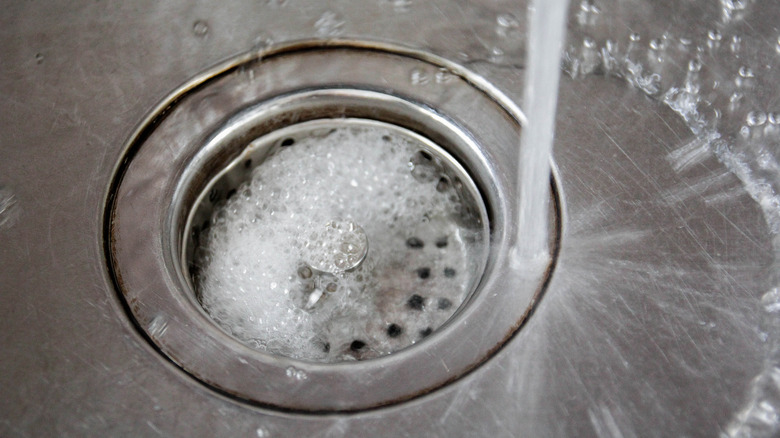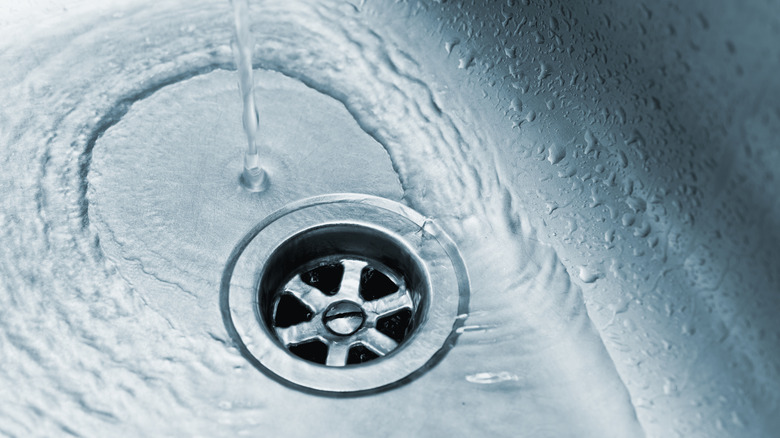How To Clean Your Kitchen Sink Drain Perfectly Every Time
They say a job well done is its own reward, and that's the best way to think about those more unpleasant cleaning tasks. Getting up close and personal with the drain of your kitchen sink isn't something to look forward to, but if you do it well, you can keep it off your mind (and off your to-do list) for as long as possible. The good news is that in order to clean your kitchen sink effectively, you don't need to get your hands dirty. In fact, even plumbers recommend using products that you probably already have at home.
For a simple maintenance cleaning, start by pouring ½ cup of baking soda down the drain, followed by ½ cup of white vinegar. It's important that you don't mix them first, as this will neutralize their respective cleaning effects. You should hear a fizzing sound as the two solutions interact. Let the mixture sit for about 15 to 30 minutes, then flush the drain with boiling water to rinse it all out. Repeating these steps at least once a month should help avoid smells and more serious blockages.
More tips for a clean kitchen sink drain
The key to a hygienic drain is prevention. While you might assume that the drain gets cleaned whenever dishes are washed, this isn't exactly true. Even if you dispose of excess oils, grease from your plates coagulates once it enters the pipes, where the grease quickly attracts food particles. To avoid buildup, consider flushing the drain with boiling water once a week, in addition to the monthly maintenance clean.
If your drain starts to smell in between cleans, the most likely culprit is excess food particles. This food residue begins to decompose after becoming lodged in the drain, resulting in a rank odor. While perhaps obvious, the best solution is to scrape your plates well before washing, even if you have a garbage disposal unit. Some of the worst foods to let escape down the sink are starchy items such as pasta, rice, and potatoes — which will swell as they take on more water. Coffee grounds are also a no-no. When full of liquid, they easily clump together to create blockages. While they might smell nice when fresh, the oils in coffee beans can turn rancid over time.
If you have a garbage disposal, you might want to take extra steps to ensure it smells fresh. The simplest method is to add two cups of ice, coarse salt, and some lemon slices, and allow them to grind. The ice and salt help to scrape any food residue clinging to the blades, while the lemon cuts through any excess grease, leaving a pleasant fragrance behind.

